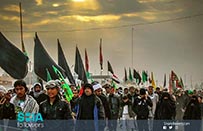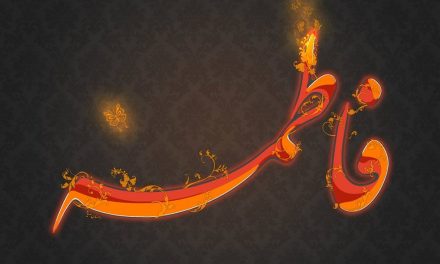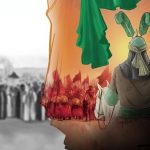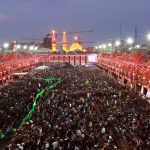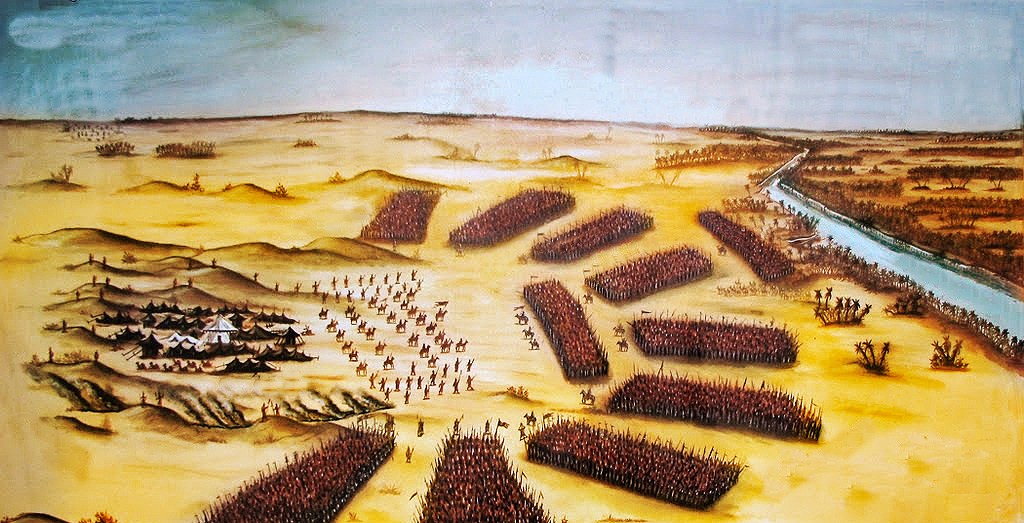
Hussain and his supporters had been stopped in the desert land of Karbala (in Iraq), where they had been denied access to water for 3 days. At dawn on the Day of Ashura, Hussain and his men made their prayers, knowing that what was ahead of them was certain defeat yet they all remained steadfast and loyal to their principles.
The battle of Karbala commenced at noon, small bands of men dispatched Hussain’s camp to go and fight valiantly against the army of Yazid. One after the other Hussain’s supporters fought and died until eventually Hussain had no one left to support his resistance.
Hussain was fatigued, thirsty and heavily wounded having fought bravely against the enemy, until eventually he fell. The enemy forces attacked him from all sides with swords, spears and arrows until a man by the name of Shimr ruthlessly beheaded Hussain on the burning plains of Karbala.
Whilst Hussain died in the battle, he was victorious through his legacy. His actions and the stand he made at Karbala triggered a series of small uprisings against the tyrannical regime of Yazid which led to his eventual demise. Yazid’s army took the women and children from Hussain’s camp as war prisoners and marched from Iraq to Syria where they were held captive.
Hussain’s sister Zainab and his son Zain Al-Abideen, defied Yazid in his own courtyard in famous sermons which unnerved even his closest allies. Thereon, the remaining members of Hussain’s family spread the word to the people about the massacre which took place and the crimes that were committed on The Day of Ashura.
Hussain ibn Ali is remembered around the world as a symbol of resistance who stood for humanitarian values.
The Day of Ashura is mourned and remembered by millions of people across the world as the day Hussain and his supporters were killed in The Battle of Karbala. Today, pilgrims from all across the world visit the shrine of Hussain ibn Ali in Karbala where he is buried, to pay their tribute to his courageous stand.
On the day of Ashura many Muslims partake in large peaceful gatherings where they recite poems in memory of Hussain and his sacrifice whilst lamenting and beating their chest as a cultural tradition to display their grievance. Many people use the day of Ashura as a day to perform acts of kindness and charity as a way for them keep alive the very same principles and values Hussain gave his life for.
Source: whoishussain.org

